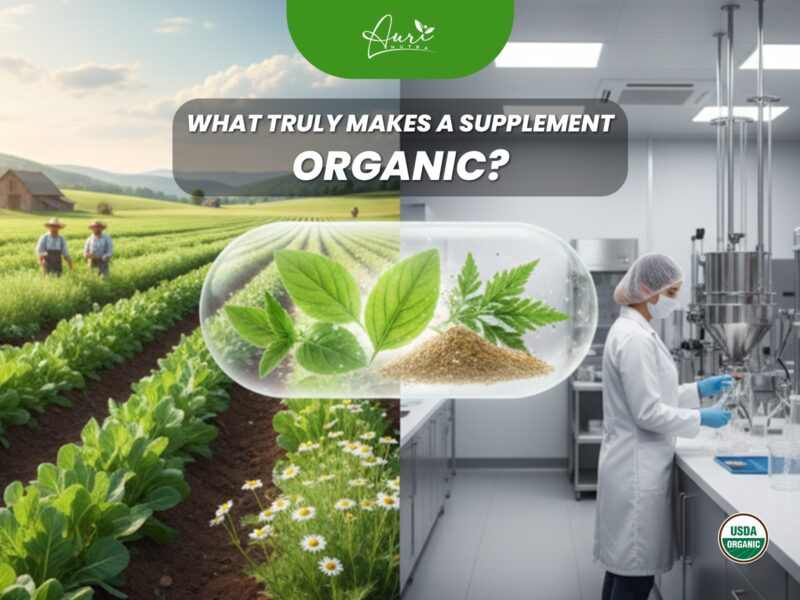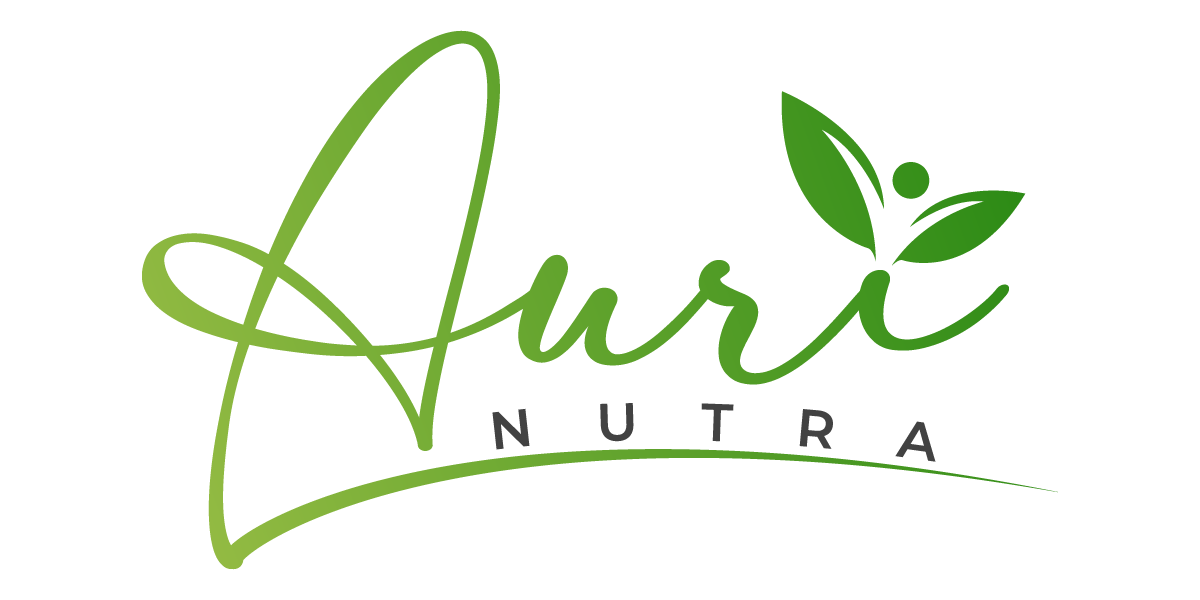
In today’s health-conscious market, the term “organic supplement” has evolved from a trendy buzzword into a certified commitment to purity, sustainability, and transparency. Consumers are no longer just reading labels—they’re researching organic supplement standards to ensure the vitamins, protein powders, and herbal tinctures they buy meet real, science-backed organic certification requirements.
But what does it truly mean when a supplement is labeled “organic”? The designation goes far beyond clever marketing; it represents a legally defined, government-regulated system that governs every step of a product’s journey—from the soil where it’s grown to the shelf where it’s sold.
Understanding what makes a supplement organic is crucial to choosing products that align with both your health goals and environmental values.
The Foundation: Certified Organic Farming
The organic promise begins where nature does—at the farm. For a supplement to be officially organic, its agricultural ingredients must be grown and harvested according to the strict guidelines of the U.S. Department of Agriculture (USDA) National Organic Program (NOP).
These principles form the foundation of organic supplement certification requirements, ensuring that every ingredient contributes to a sustainable ecosystem.
Key Principles of Organic Agriculture
- No Synthetic Pesticides or Herbicides: Organic farms avoid synthetic chemicals entirely. Instead, they rely on biological pest management—such as crop rotation, composting, and beneficial insects—to promote soil fertility and balance.
- Prohibition of GMOs: Genetically Modified Organisms (GMOs) are strictly prohibited in organic farming. Seeds and starter plants must be verified non-GMO, guaranteeing that organic supplements remain genetically pure.
- Soil Health and Sustainability: Healthy soil equals healthy nutrients. Organic farms enhance soil biodiversity through composting, cover cropping, and natural fertilization—methods that support long-term ecological balance.
- No Sewage Sludge: The use of sewage sludge as fertilizer is banned due to contamination risks from heavy metals and pathogens. This ensures ingredient purity at the source.
These agricultural foundations are essential to the organic supplement manufacturing process, as they determine the quality and integrity of every botanical, grain, or nutrient that ends up in your capsule or powder.
From Farm to Facility: The Organic Supplement Manufacturing Process
Once organic ingredients are harvested, maintaining that purity throughout processing is crucial. The organic supplement manufacturing process is governed by the same USDA NOP standards that apply to farming—ensuring that no contamination or artificial additives compromise the integrity of the final product.
Core Organic supplement Manufacturing Requirements
- No Irradiation: Organic ingredients cannot be sterilized through ionizing radiation—a method sometimes used in conventional manufacturing to extend shelf life.
- No Synthetic Additives: Certified organic supplements must be free of artificial colors, preservatives, or flavors. Non-agricultural substances, such as vitamins or processing aids, must be listed on the National List of Allowed and Prohibited Substances.
- Strict Separation Protocols: Facilities handling both organic and non-organic materials must follow strict segregation and cleaning procedures to prevent cross-contamination. Equipment must be cleaned with NOP-approved agents before organic production begins.
These practices ensure that every step—from ingredient milling to encapsulation—meets the highest organic supplement standards.
The Seal of Approval: Third-Party Organic Certification
Not every company can simply call its product “organic.” To earn that title, supplement manufacturers must undergo third-party organic certification under USDA oversight. This process verifies that every ingredient, process, and facility complies with strict federal rules.
Certification Steps Include:
- Application & Organic System Plan (OSP): The manufacturer must submit detailed documentation explaining their entire process—from sourcing and ingredient handling to labeling and packaging.
- On-Site Inspection: A government-accredited inspector visits the production site, reviews records, and verifies compliance with USDA Organic certification requirements.
- Annual Review: Once certified, manufacturers undergo yearly audits to maintain certification and continue using the USDA Organic seal.
This verification system ensures consumers can confidently verify an organic dietary supplement and trust that it meets authentic standards—not just marketing claims.
Understanding Organic Labels and Their Meaning
Not all organic labels are equal. Understanding what each claim represents helps consumers make informed, science-based choices when buying organic dietary supplements.
Levels of Organic Certification
| Label | Requirements | USDA Seal Allowed? |
| 100% Organic | All ingredients must be certified organic (excluding salt and water). | ✅ Yes |
| Organic | At least 95% of ingredients must be certified organic; the remaining 5% must be approved non-GMO ingredients. | ✅ Yes |
| Made with Organic Ingredients | At least 70% certified organic ingredients; can list up to three organic ingredients on the label. | ❌ No |
Understanding these categories helps consumers distinguish between organic and non-organic supplements and avoid misleading marketing.
Organic vs Non-Organic Supplements: The Key Differences
The difference between organic and non-organic supplements lies in transparency, sourcing, and purity.
| Category | Organic Supplements | Non-Organic Supplements |
| Ingredient Sourcing | Grown without pesticides, GMOs, or synthetic fertilizers. | Often sourced from conventional farms using chemical pesticides. |
| Processing | Minimal processing with approved organic methods. | May include irradiation, artificial additives, and synthetic colors. |
| Label Oversight | Verified by USDA-accredited agencies. | No federal oversight for purity or sustainability claims. |
| Environmental Impact | Promotes biodiversity and soil health. | Can lead to soil depletion and chemical runoff. |
Choosing organic ensures both your body and the planet benefit from cleaner, more sustainable nutrition.
The Role of USDA Certification in Organic Supplement Manufacturing
Auri Nutra Inc. is proud to be USDA-Organic certified, ensuring our manufacturing aligns with every regulation of the National Organic Program. We handle everything—from ingredient sourcing to final packaging—to maintain full compliance for your products.
If your brand requires official certification, we can manage the USDA application process for a one-time, small administrative fee. This includes sourcing organic raw materials, preparing compliance documentation, and conducting all necessary manufacturing and labeling steps.
👉 Learn More About Our Nutraceutical Manufacturing Process
How to Verify an Organic Dietary Supplement
Consumers often wonder how to confirm a supplement’s authenticity. Here are a few ways to verify an organic dietary supplement before purchase:
- Look for the USDA Organic Seal: Only products that meet 95–100% organic content requirements may display it.
- Check Certification Agency: Verify that the certifier is USDA-accredited (e.g., QAI, Oregon Tilth, or CCOF).
- Review Ingredient List: Organic ingredients should be clearly labeled; synthetic additives should be absent.
- Request Documentation: Reputable manufacturers can provide Certificates of Organic Compliance upon request.
These steps protect consumers from false organic claims and ensure alignment with organic supplement certification requirements.
The Organic Supplement Manufacturing Process in Action
Modern organic supplement production is a blend of traditional purity and advanced technology. The organic supplement manufacturing process involves:
- Organic Ingredient Procurement – Verified raw materials sourced from certified farms.
- Testing & Verification – Microbial, heavy metal, and pesticide-free testing.
- Formulation Development – Blending of active compounds with approved organic binders and carriers.
- Encapsulation & Packaging – Using organic-compliant equipment and packaging materials.
- Final Certification & Labeling – USDA inspection and verification prior to distribution.
This end-to-end traceability ensures your product not only meets certification criteria but exceeds consumer expectations for purity.
👉 Learn More About Our Nutraceutical Manufacturing Process
How to Choose Truly Organic Supplements
With so many products claiming to be “natural” or “clean,” how can consumers know how to choose truly organic supplements?
Here’s what experts recommend:
- Check for USDA or EU Organic Logos: These seals are regulated and cannot be self-assigned.
- Evaluate Transparency: Authentic brands share their sourcing, testing, and certification details.
- Confirm Third-Party Verification: Independent lab testing ensures consistency and potency.
- Read Ingredient Origins: Certified organic ingredients must come from registered farms and processors.
- Assess Packaging Claims: Avoid vague terms like “eco-friendly” or “pure” without certification references.
Choosing certified organic supplements means investing in cleaner health and a sustainable planet.
Auri Nutra: Your Partner in Certified Organic Supplement Manufacturing
At Auri Nutra Inc., we specialize in organic supplement manufacturing designed for both startups and established wellness brands. Whether you need USDA certification, formulation assistance, or full turnkey organic manufacturing, we streamline the process.
Our services include:
- Organic ingredient sourcing
- Formulation and R&D collaboration
- Custom encapsulation and packaging
- Compliance with USDA, GMP, and FDA regulations
We uphold the values that define true organic integrity—purity, sustainability, and transparency from farm to finished product.
👉 Get a Nutraceutical Manufacturing Quote
Why Organic Standards Matter More Than Ever
As consumer awareness and regulatory scrutiny increase, adhering to organic supplement standards has become not just a choice—but a competitive necessity.
For brands, organic certification enhances market trust, improves SEO visibility under terms like “organic,” and aligns with sustainability-driven buyers. For consumers, it guarantees that what they consume is free from synthetic additives, grown responsibly, and verified for authenticity.
An organic supplement is more than a product—it’s a reflection of a regulated system built to protect people and the planet.
Conclusion: The True Meaning of “Organic”
When you see the USDA Organic seal on a supplement, you’re looking at more than a label—you’re seeing proof of ethical sourcing, clean manufacturing, and verified purity. It signifies that the product has met every organic supplement certification requirement, from the soil where it started to the capsule in your hand.
In a marketplace crowded with vague claims, truly organic supplements stand apart as the gold standard of wellness integrity.
Sources:
- USDA Certified Organic: Understanding the Basics | Agricultural Marketing Service
- Organic and GMOs | OTA
- Organic 101: What Organic Farming (and Processing) Doesn’t Allow | USDA
- How Can You Meet Organic Food Labeling Requirements?
- Organic 101: Five Steps to Organic Certification | USDA
